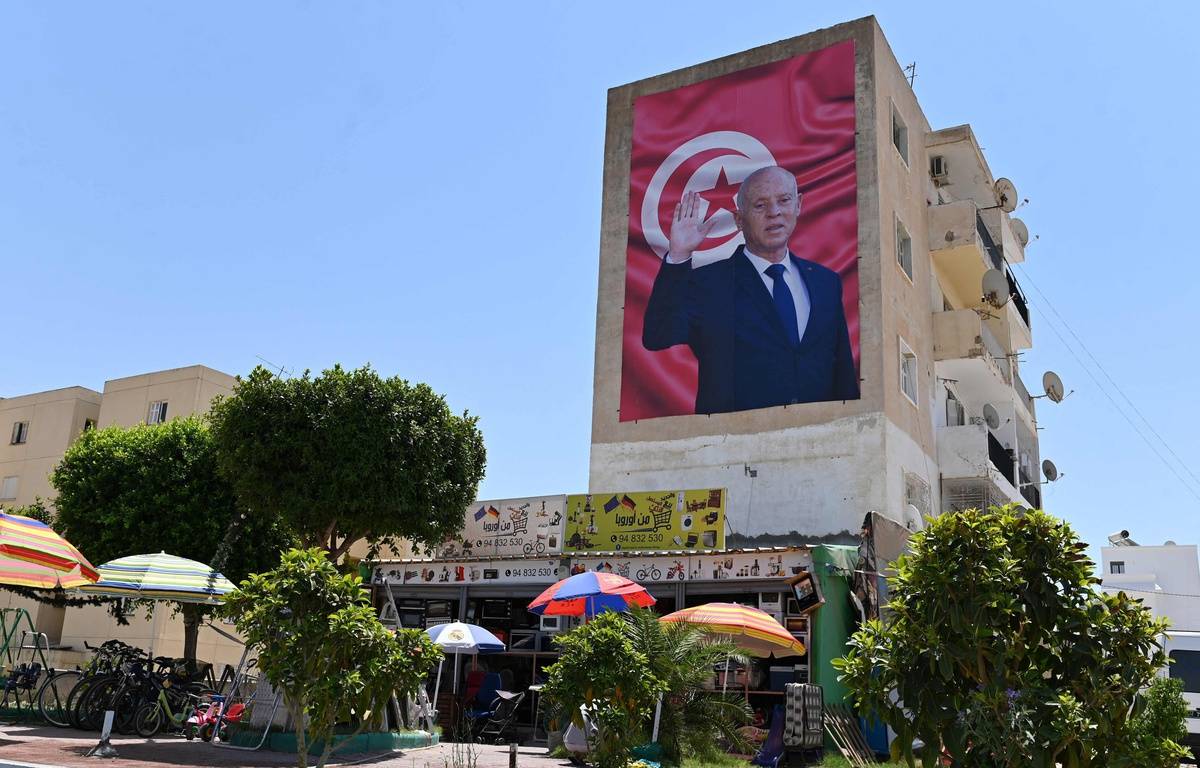President Kais Saied has achieved success with the adoption by a large majority of a new Constitution which grants him vast prerogatives at the risk of jeopardizing the young Tunisian democracy, but the low turnout is undermining the legitimacy of the process, according to his opponents.
The new fundamental law was adopted by an overwhelming majority of 94.6%, according to preliminary official results announced late Tuesday by the president of the electoral authority Isie, Farouk Bouasker, after lengthy counting operations.
The turnout, considered very low, increased slightly compared to the provisional figures announced the day before by Isie, “to 2.756 million voters” against “2.46 million and a participation of 27.54%” .
Three out of four Tunisians did not vote
The coalition of opponents Front du salut national (FSN), which had called for a boycott of the ballot denouncing a text “tailor-made” for Saied, accused Isie of having “falsified” by amplifying the figures on the voter turnout.
For the FSN, which includes the Islamist-inspired movement Ennahdha, Saied’s pet peeve, by not going to the polls, “75% of Tunisians refused to give their approval to the putschist project launched a year ago by Kais Said”.
Tunisia, facing an economic crisis aggravated by the Covid and the war in Ukraine on which it depends for its wheat imports, has been very polarized since Mr. Saied, democratically elected in 2019, seized all the powers on 25 July 2021, arguing that the country is ungovernable.
Washington concerns
In the first foreign position on this disputed referendum, the United States warned of the risk that the Constitution would not sufficiently guarantee the rights and freedoms of Tunisians.
“The new Constitution includes weakened checks and balances, which could compromise the protection of human rights and fundamental freedoms,” said Ned Price, spokesman for the US State Department. Said Benarbia of the NGO International Commission of Jurists expressed doubts “about the legitimacy” of the vote with such a low turnout. For analyst Youssef Cherif, “most people voted for the man (Kais Saied) or against his opponents, not for his text”.
